Buxus Vahlii
Scientific name: Buxus vahlii
POWO Status: Tree
IUCN Red List threat level: Endangered
Common name: Vahl’s boxwood
GPS Location: 17° 42′ 59.33″ N, 64° 49′ 50.73″ W
Conservation Garden
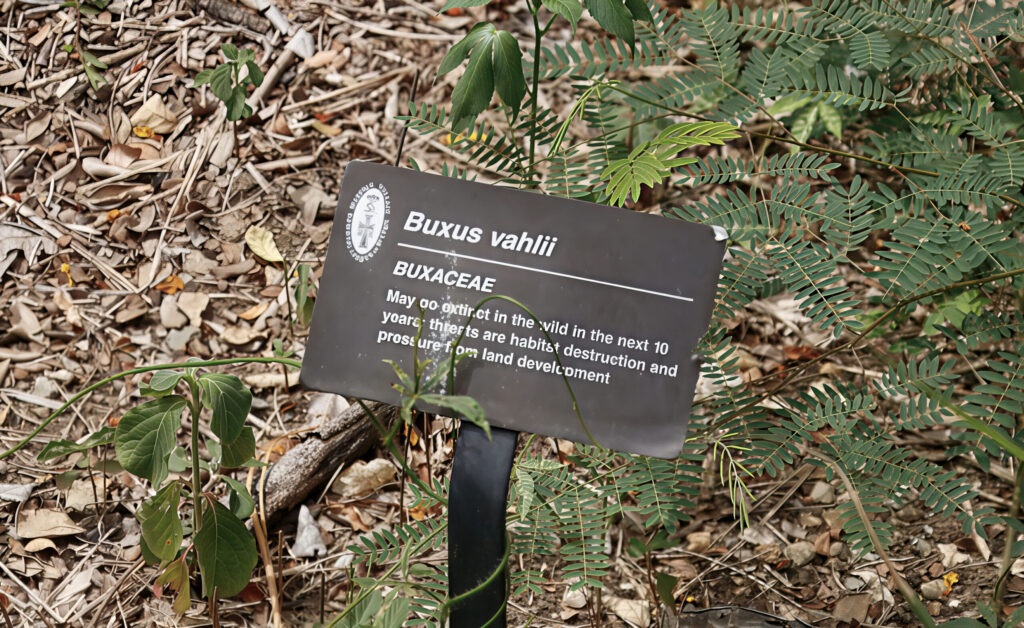
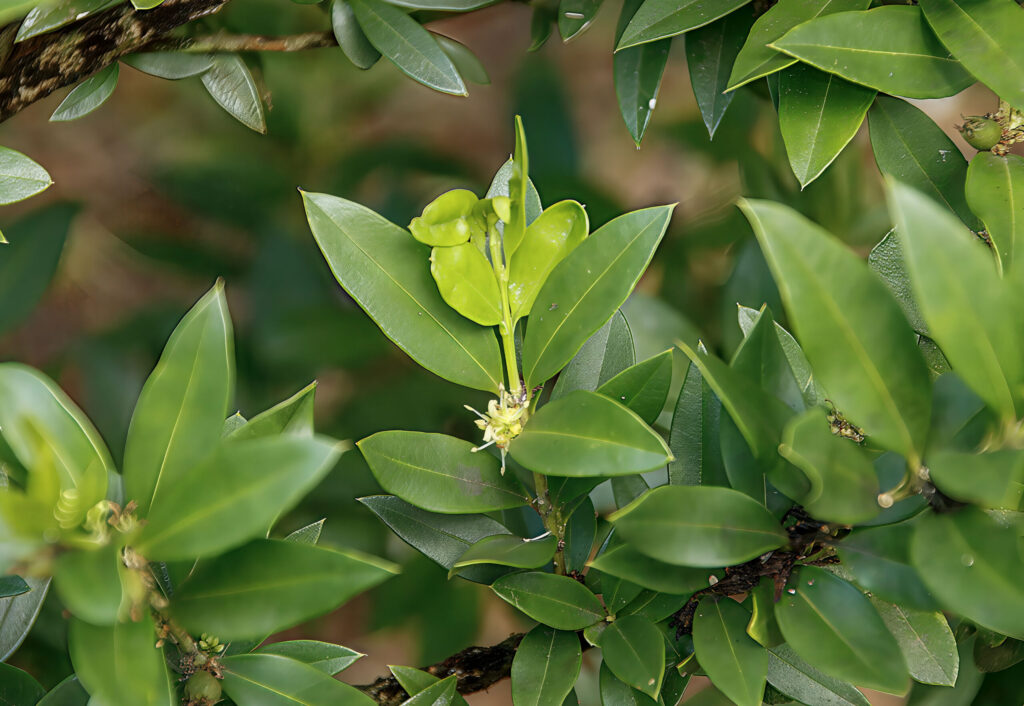
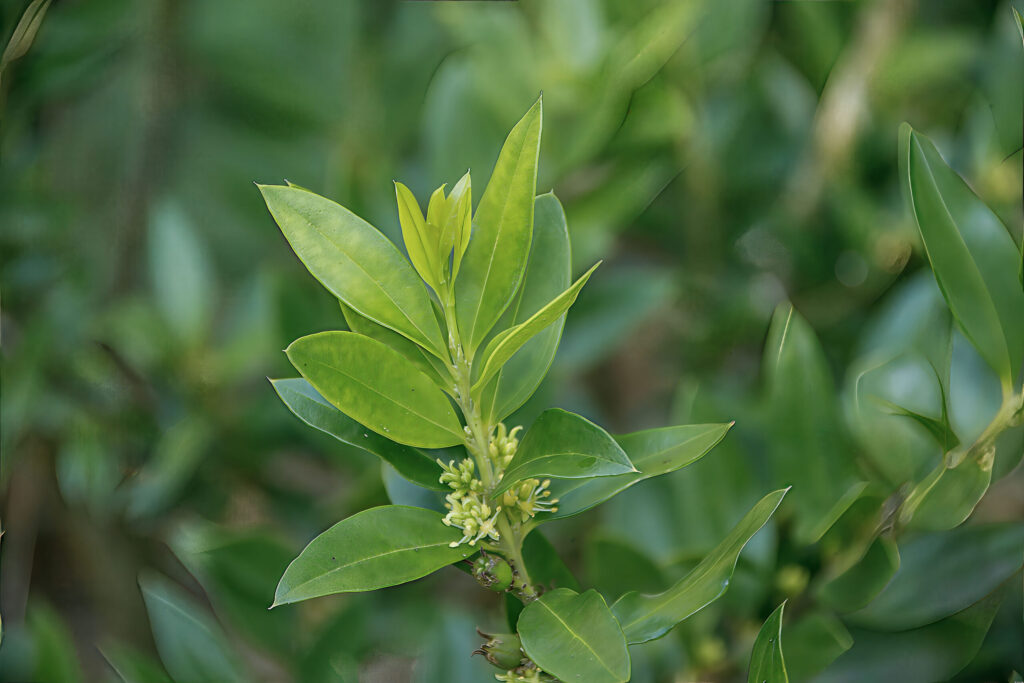
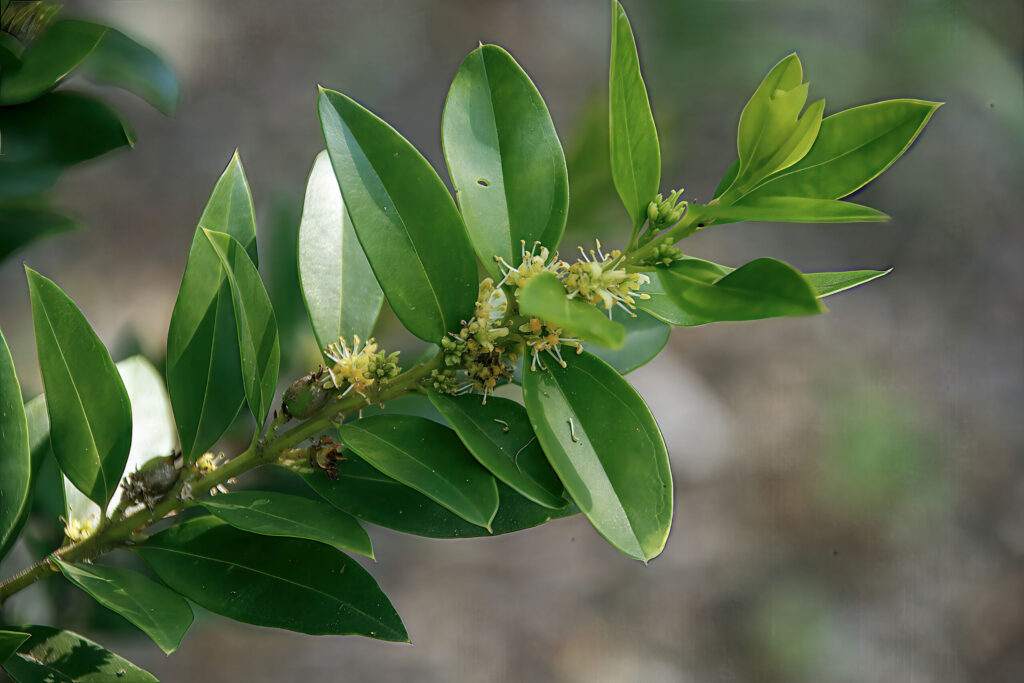
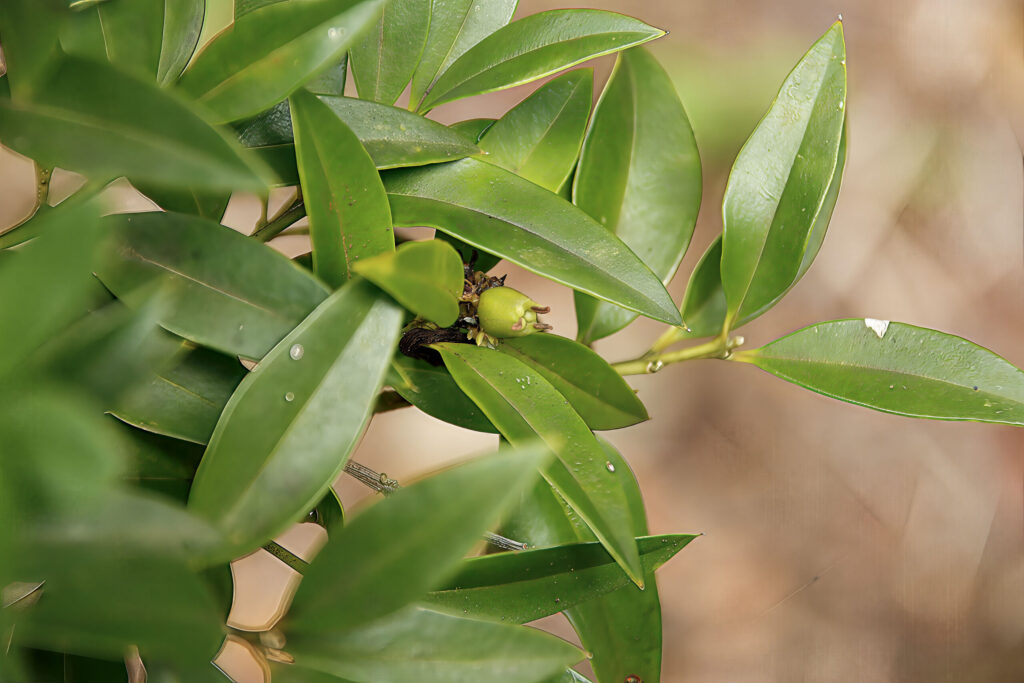
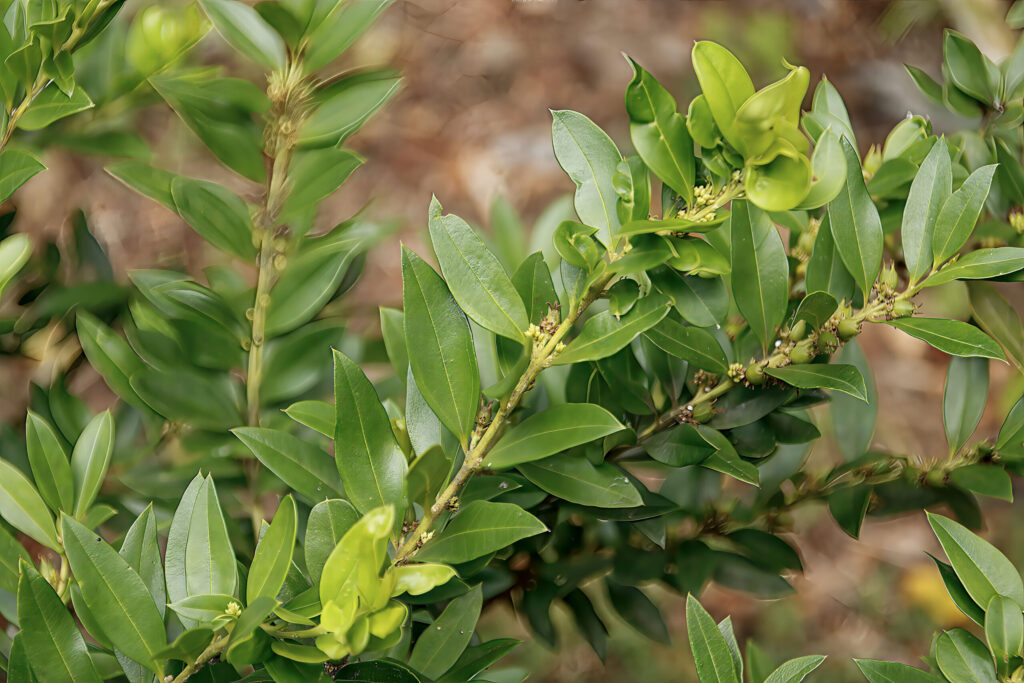
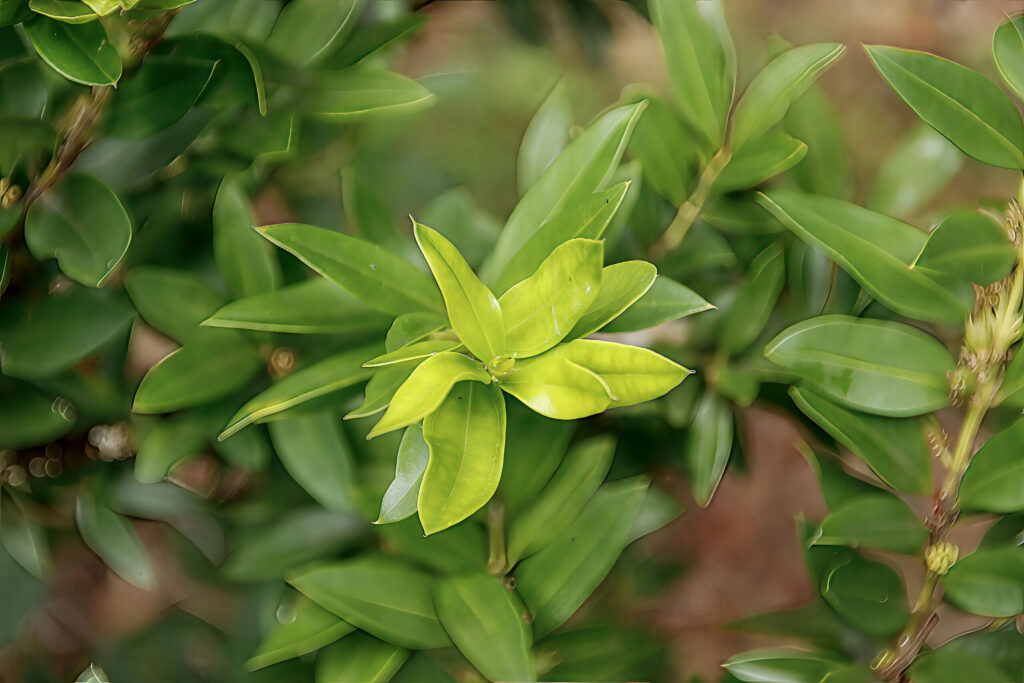
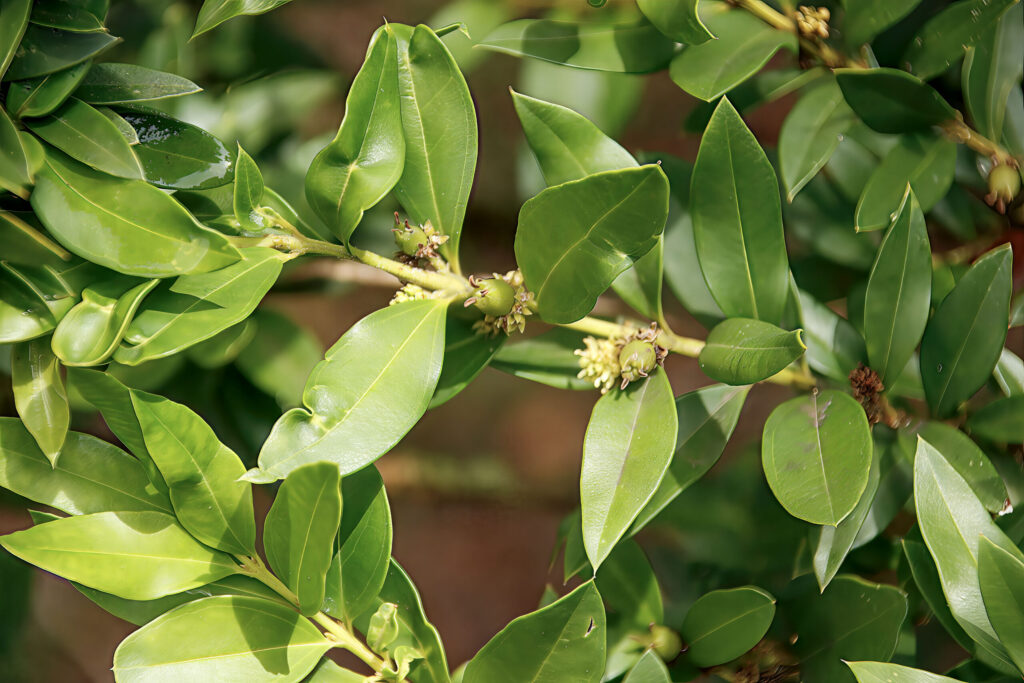
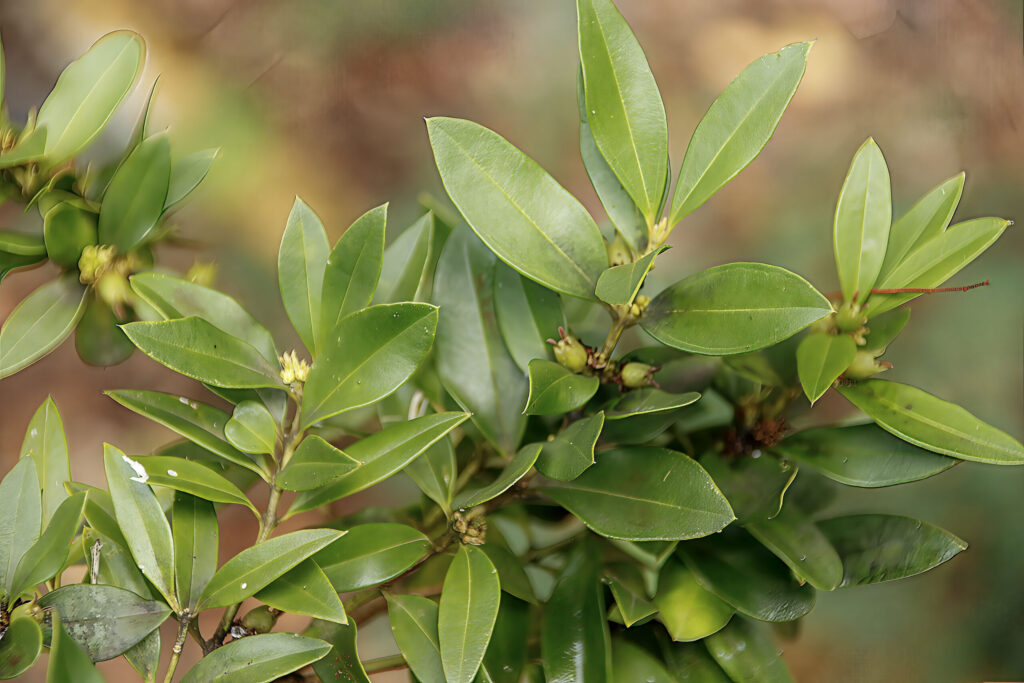
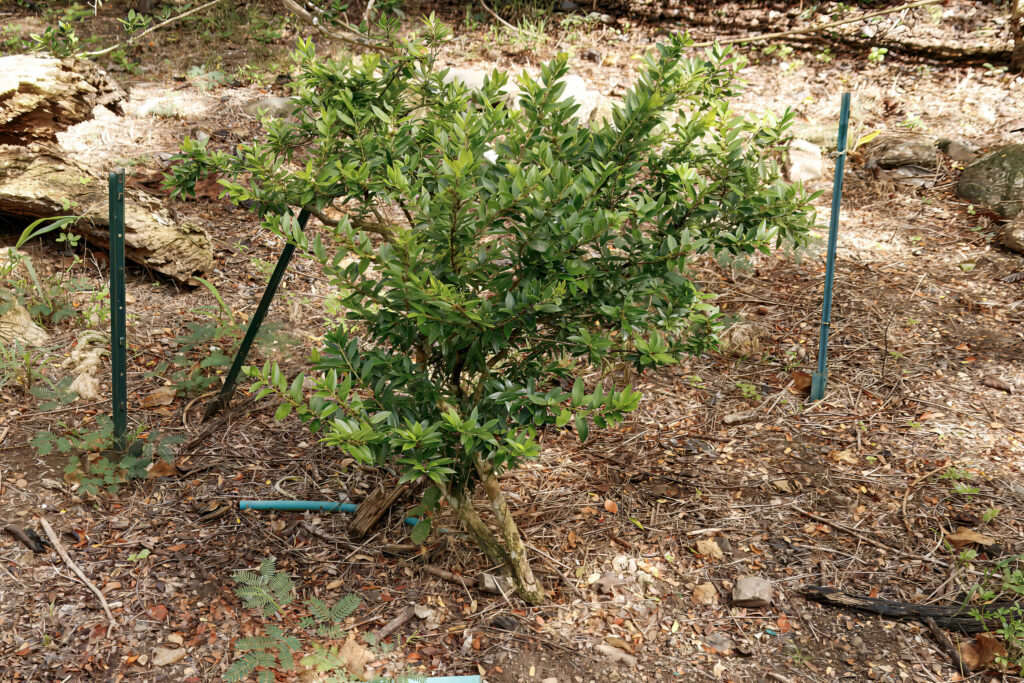
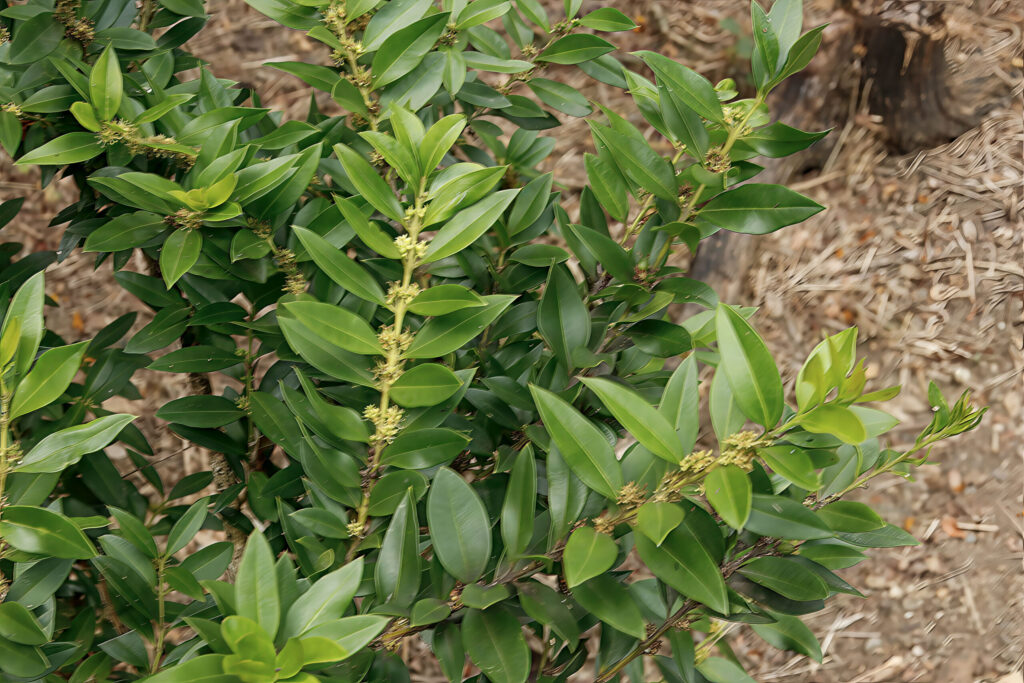
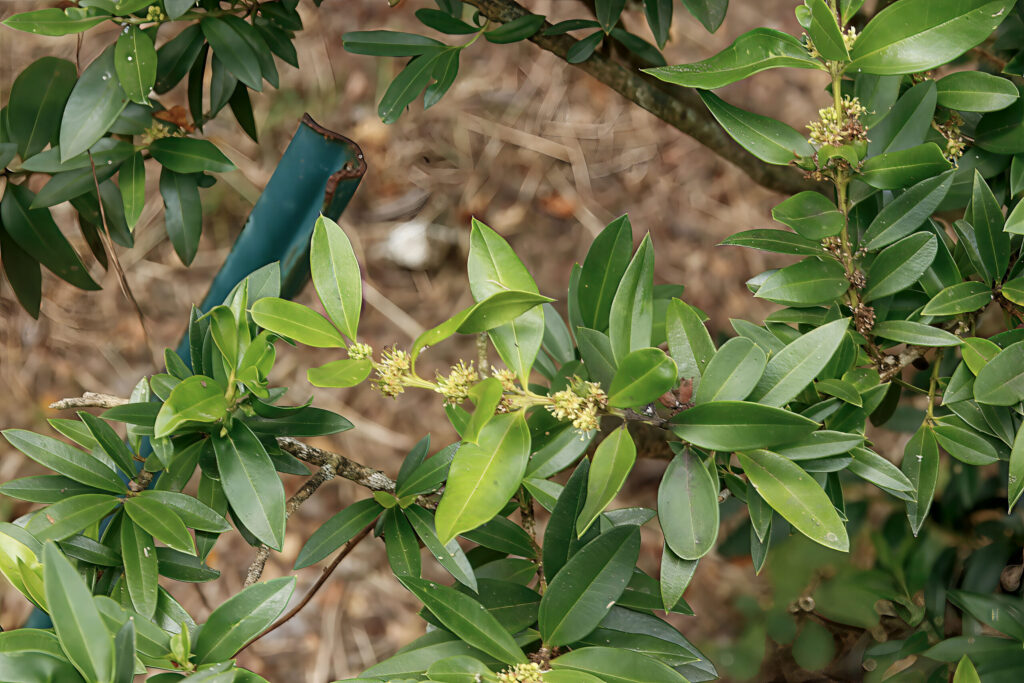
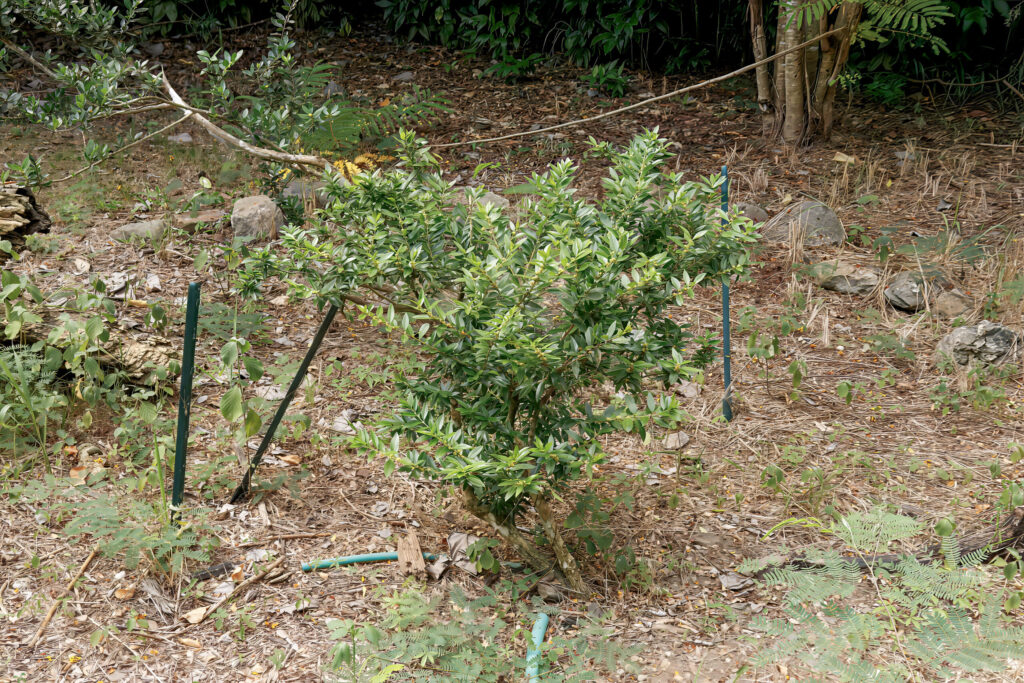
Observations:
Phenological Markers – Buxus vahlii (Vahl’s Boxwood)
Family: Buxaceae
Common Name: Vahl’s Boxwood
Habitat: Native to tropical and subtropical regions, found in forest margins and disturbed areas.
Phenological Markers:
- Flowering Period: Typically begins in March to April in tropical climates. The flowers are small and inconspicuous, borne in clusters.
- Fruiting Period: The fruiting period follows flowering and typically occurs between June and July, producing small, capsule-like fruits that contain seeds.
- Leaf Fall: Evergreen species; leaves remain throughout the year, but some shedding may occur during prolonged dry seasons.
- Budding Period: New growth generally starts in the early spring (March-April), with young leaves emerging after flowering.
Key Features:
- Leaves: Oval-shaped, dark green, leathery texture.
- Bark: Light brown, somewhat smooth.
- Flowers: Small, yellow-green, and appear in clusters.
- Fruits: Capsule-like with 2-4 seeds.
Additional Notes:
This species is known for its resilience and ability to grow in a variety of soil types, but it thrives best in well-drained, loamy soils. It’s used in landscaping and ornamental plantings due to its dense foliage and aesthetic appeal.
